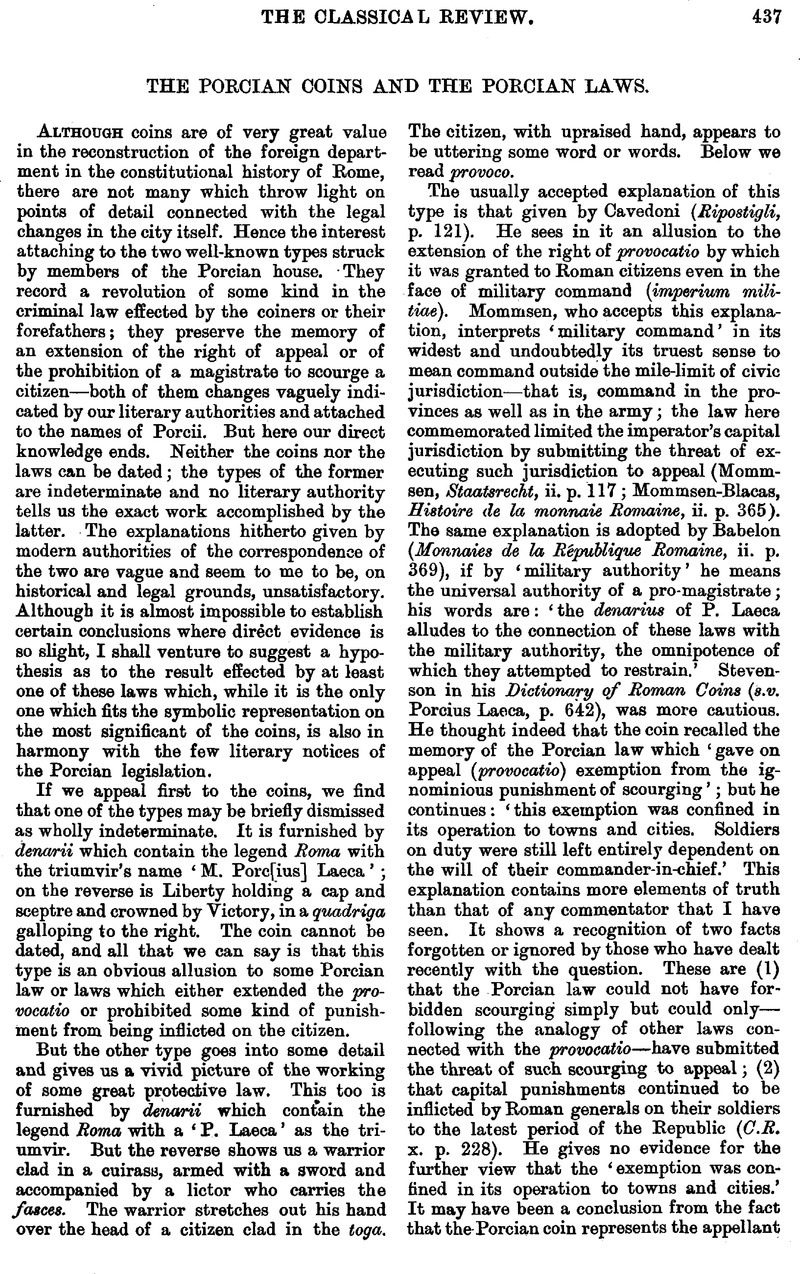No CrossRef data available.
Article contents
The Porcian Coins and the Porcian Laws
Published online by Cambridge University Press: 27 October 2009
Abstract

- Type
- Review Article
- Information
- Copyright
- Copyright © The Classical Association 1897
References
page 438 note 1 Sallust, Cat. 51, 21. ‘Sed, per deos immortales, quam ob rem in sententiam non addidisti, uti prius verberibus in eos animadverterelur? an quia lex Porcia vetat? at aliae leges item condemnatis civibus non animam eripi sed exsilium permitti jubent. §§ 40. turn lex Porcia aliaeque leges paratae sunt, quibus legibus exsilium damnatis permissum est.’
page 438 note 2 If this interpretation be accepted, the law in question appears to have been considerably later than at least the first lex Porcia which dealt with the provocatio; for the theory of exsilium here stated differs from that with which Polybius was familiar (vi, 14).
page 438 note 3 Mommsen in Neue Jenaische Litteratur- Zeitung, 1844, p. 258. The acceptance of this interpretation of Mommsen's by no means proves the truth of his main contention in this article, viz. that the condemnation by a magistrate and provocatio were invariable elements in a judicium, populi. The procedure of the provocatio and that in an ordinary judicium populi were probably distinct. The distinguishing point was that the condemnation by a magistrate existed only in the first. The points of contact between the two processes were (a) the formalities of the trial before the people, (b) the possibility of exsilium (see C.S. ix. p. 6). A final proof that the provocatio played no part in a judicium populi is furnished by the fact that women could be the subjects of a judicium populi (GelL iv. 14, 2), although they did not possess the provocatio through not having communio comitiorum.
page 439 note 1 It was possibly to avoid the appearance of consular coercitio that the Catilinarian conspirators were strangled.
page 440 note 1 Seneca, de ira, 3, 12. ‘Pro scapulis cum dicit Cato significat injuria verberum (Festus ‘pro injuria verberum’); nam complures leges erant in cives rogatae, quibus sanciebatur poena verberum.’


